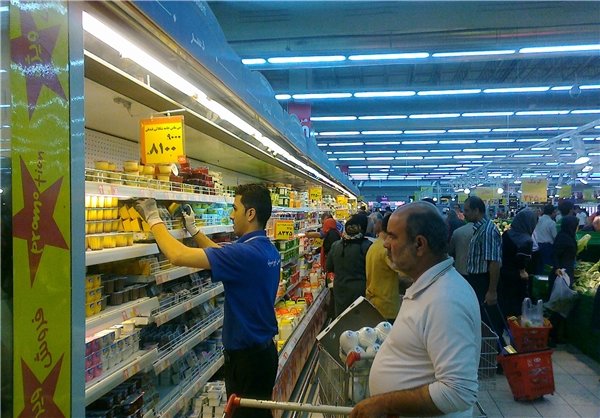Official statistical figures vs. Iranians’ economic conditions

According to the latest report released by the Statistical Center of Iran (SCI), in the first half of the current fiscal year (March 21-September 22), the country’s economy grew by 5.6 percent, while the figure, without taking into account oil production, stood at 6 percent, compared to last year's corresponding period. The state-run body also put the inflation rate for the 12-month period ended on the last day of the ninth Iranian calendar month of Azar (December 21) at 8 percent, compared to the same period in the preceding year.
“The six-percent growth in addition to the single-digit inflation rate reflects Iran’s good economic situation,” Frist Vice President Es’haq Jahangiri claimed on Wednesday.
But do Iranians agree with the First Vice President?
Inflation, purchasing power
• Has Iranians' purchasing power increased? Can wages combat inflation’s upward trend and expenditures?
The increase in prices of basic goods outstrips that of people’s income i.e. purchasing power has decreased. Questioning the announced inflation rate of 8 percent in Azar, some experts note that the calculated base year- the year used for comparison in the measure of a business activity, here the inflation rate,- has been changed from Iranian calendar year of 1390 to 1395 (ended March 20, 2017), which as they say has led into decrease in inflation rate by two or three percent. i.e. in case of having 1390 as the base year, inflation in Azar would stood at 10 to 11 percent.
Economic growth
• Is the achieved economic growth or the curbed inflation tangible in Iranians' daily lives?
Iranian businessmen and entrepreneurs lament that they cannot feel the impact of the obtained growth in their business activities. Some experts explain that the achieved rate has occurred in Iran’s major economic firms and state-run or semi-governmental companies, such as those of the auto sector or petrochemicals, and the growth’s impact cannot be felt by the private sector or the common people who are in contact with small and medium sized businesses. As they suggest, it is a must for the government to modify its calculation methods to provide a vivid reflection of the country’s economic status quo.
Unemployment, available jobs
• Are there sufficient job vacancies for Iran’s young workforce? Are small and medium-sized production units ready to absorb domestic workforce?
Domestic production sector is not working at full capacity. There are still a large number of small and medium-sized enterprises which have been closed or are operating with half of their capacity. As Jahangiri announced on Wednesday, 3.1 million of Iranians are still unemployed, although the government could create 600,000 jobs within the past two years.
Minister of Labor and Welfare Ali Rabiee put the blame on the large number of young force. As he said, “the number of job applicants surpasses the number of the created jobs by the government and this is the main reason that government’s efforts to create new jobs are not noticeable.” The government continues creating jobs in small and medium sized industries, he added.
Outlining his government’s performance recently, President Rouhani addressed the unemployment issue announcing that there was zero job creation from 2006-7 to 2013-14 whereas from the third quarter of 2014-15 to the second quarter of 2017-18, an average of 685,000 jobs were generated annually. The progress made by his administration in the first 100 days of his second term in terms of job creation is more impressive than that of the past two to three years, he added. The government will continue to keep inflation rate in the single-digit territory and couple it with positive economic growth, he vowed.
“The government aims to improve the figure up to one million per annum in future,” Jahangiri announced on Wednesday.
Rial depreciation
• Could government manage to halt depreciation of rial, as an influential and tangible economic factor for common people?
Rial has been depreciated in the past months against the U.S. dollar and was quoted at 42,050 to the greenback at Tehran's free foreign exchange market on Sunday. In fact, rial depreciation has a negative correlation with economic growth. During the past years, rial depreciated much less than the inflation rate thanks to oil revenues which enabled policymakers to stabilize the exchange market during the years of rampant inflation. But how far can the government continue the trend to restrict the amplitude of misalignment on the exchange rate? The question remains unanswered.
Keeping all above in mind, it is worth noting that, Iran has been under draconian sanctions for years and major part of its potentials and capacities has been left unexploited. As of the implementation of its nuclear deal in January 2016, however, the country has taken a breath and could reach a positive economic growth. Even if the growth is not tangible in people’s lives or the number of created jobs is less than the unemployed workforce, the achievements should not be downgraded.
Accordingly, to make the obtained economic growth tangible in Iranians’ lives, especially low-income earners, it is a must for the government to maintain its developing trend in the upcoming years, via supporting production and uprooting unemployment. The government should focus on renovation of industrial units, developing knowledge-based economy and shifting from dependency on oil revenues to non-oil income. Oil revenues should be injected to production sector to lubricate economy wheels instead of being spent on current expenditures.
And the most important of all, the government should not overtly rely on the obtained statistical figures as its major achievements, since regarding the current economic conditions of Iranians, which will mistakenly suggest public opinion that the government is exaggerating about its achievements and opens the way for opponents to scrutinize it for its measures.
HJ/MA
